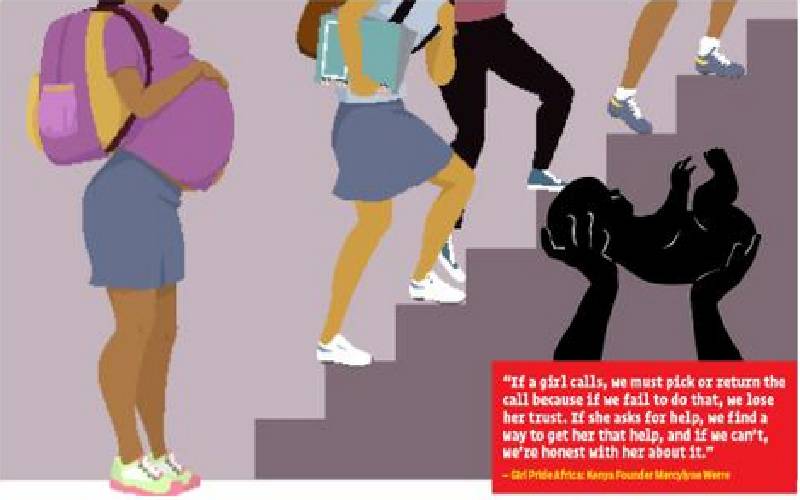×
The Standard e-Paper
Stay Informed, Even Offline
 “If you haven’t gone out of your way to help anyone in this world, then you haven’t lived,” starts Mercylyne Werre.
“If you haven’t gone out of your way to help anyone in this world, then you haven’t lived,” starts Mercylyne Werre.
She’s the founder of the Kenyan chapter of Girl Pride, an NGO that supports single mothers aged between nine and 23.